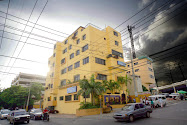For more images see http://www.pbase.com/scottnelson/haiti_recent
In spite of 16 trips to Haiti the needs are not declining… This trip we were privileged to have the expertise of Dr. Jim Matiko one of my previous professors from residency at Loma Linda University as well as Geordy a senior orthopaedic resident from New York City. Even more noteworthy than us 3 “gringos” are the 3 Dominicanas – two nurses and anesthesiologist that can worked tirelessly into the morning hours on multiple occasions this past week. Their unwavering devotion, loving attitude and efficiency are an inspiration to all.
Working with other surgeons is a rare privilege in the states, but in the DR and during these trips to Haiti it has been a great opportunity for me to join with colleagues continue my quest for learning. It is especially a privilege to work with a former professor. He always taught all of us residents to be “lazy surgeons”. In reality “lazy surgeons” are perfectionists. The principle is that you must do it right the first time so you don’t have a complication that will create extra work. In Haiti this is especially important as many of our patients get very little follow up. Thus, each case is started with a prayer and with God’s helping hand we consider each operation a sacred event and don’t compromise on anything.
There are few experiences in life that are more gratifying, however, that is not why we do it. The gratification I simply pass on to the donors, our CURE support staff, and my family for the great privilege of helping these people. More importantly, the exchange of love in this environment of raw suffering is a call to action. The old man in bed 17 who called out to us to fix his femur every time we walked by, the little boy with the elbow fracture who smiled and thanked us as he awoke from anesthesia are just a couple of the reasons that we continue into working into the late hours of the night on these trips. Hopefully this call to action will continue remind all of us of the importance of serving those less fortunate, no matter where we are in our walk of life.




